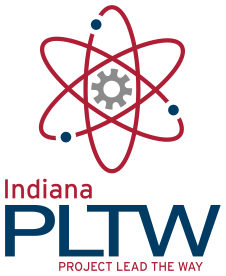IU Indianapolis has partnered with Project Lead the Way (PLTW) to provide high schools, teachers and students with innovative, hands-on science programs.
PLTW classes are taught in school during the school day, and every instructor of PLTW courses receives extensive training as well as ongoing support in the courses they teach. While the STEM subject matter is rigorous, the approach is never rigid.
